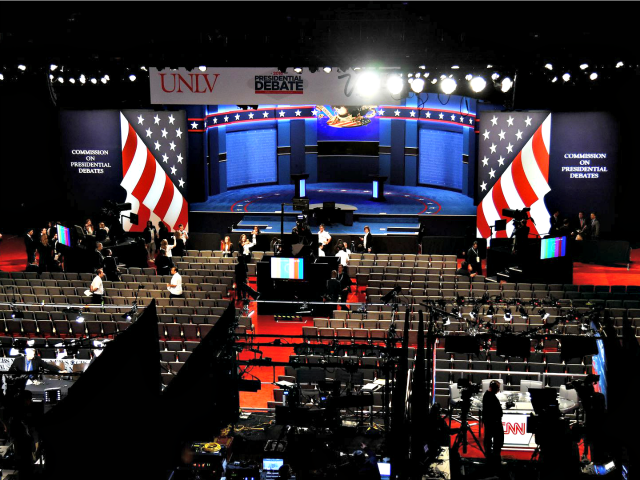Gov. Steve Bullock (D-MT) believes the Democratic National Committee (DNC) is “penalizing” some presidential candidates, preventing them from partaking in the first primary debate with its strict eligibility rules.
Bullock, who entered the presidential race after Montana’s legislature adjourned in May, said on Thursday the DNC was rewarding candidates able to campaign full-time at the expense of those with outside responsibilities.
“I’ve been penalized for making sure people have healthcare, for making sure that even in a rural Republican state that we can get good things done,” he said. “If I had to decide between campaigning for 100,000 donors or getting 100,000 people healthcare, that’s the easiest decision I’ve ever had to make.”
Currently, to qualify for the first two presidential primary debates, candidates need to be at least at one percent in four state or national DNC-approved surveys or have 65,000 unique donations, with a minimum of 200 contributions from 20 different states. The DNC has set a deadline of June 12 for candidates to qualify.
Those that do meet one criteria are not necessarily assured a spot on the debate stage, as the DNC has capped participation to only 20 candidates. If more than that qualify, which is assured to occur in the crowded 24-person field, priority is given to those that meet both thresholds.
The DNC’s strict criteria have already handicapped lesser known candidates, like Bullock and Rep. Seth Moulton (D-MA), who entered the race late. It has, however, not had the same impact on early frontrunners, such as former Vice President Joe Biden, who waited to jump in but had a sufficient national profile to secure a spot.
Apart from locking out lesser known candidates like Bullock and Moulton, the DNC’s rules have placed the status of several others in jeopardy. Sen. Kirsten Gillibrand, former Gov. John Hickenlooper (D-CO), and New York City Mayor Bill de Blasio have yet to meet the donor threshold but are near the polling threshold, according to an analysis by Politico. Their attendance is not assured, though, as candidates have jockeyed above and below one percent for most of the race.
The DNC only made things murkier Thursday when it announced that it would not use open-ended polls – those in which respondents are free to name respondents instead of choosing from a pre-approved list – in its methodology. The move all but locked out Bullock, who was counting on an open-ended poll by The Washington Post and ABC from January to clear the DNC’s qualification barriers.
Even before the last minute change, candidates such as Gillibrand had signaled they wouldn’t take the risk of relying solely on polling to make the debate stage. Breitbart News reported earlier this week the New York Democrat has spent more than $369,000 in the last month alone in an effort to hit the 65,000 donor threshold.
Following the first two debates, the situation only becomes more complicated. The DNC recently disclosed it would tighten qualification requirements for the third and fourth debates, scheduled to take place sometime later this fall.
To secure a spot, candidates will need poll at two percent in four state or national DNC-approved surveys or have 130,000 unique donations from at least 20 states. Such as in the first two debates, attendance will be capped at 20 candidates with priority given to those that meet both criteria.

COMMENTS
Please let us know if you're having issues with commenting.